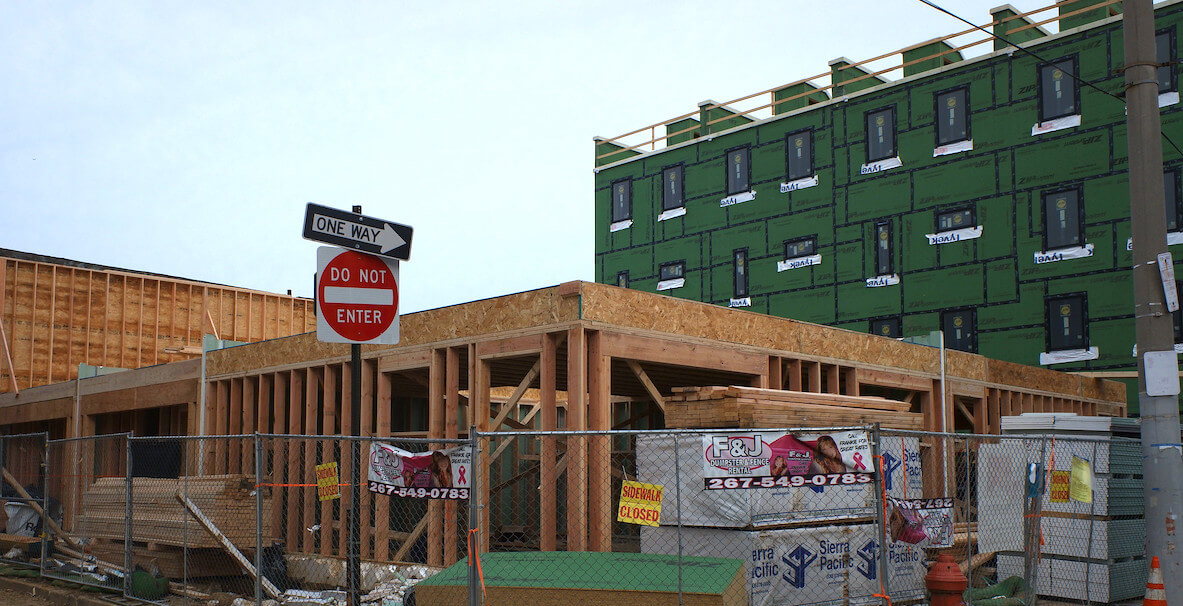More than 230,000 Philadelphia families choose between paying for food, housing, or healthcare. In too many neighborhoods, residents question how and when they will benefit from the new home construction seemingly all around them.
Last week, City Council held a public hearing on the Neighborhood Preservation Initiative (NPI), a $400 million plan for citywide investments in affordable housing production, home repairs, small business revitalization, and neighborhood preservation. NPI will be funded by a 1 percent Development Impact Tax that the Building Industry Association of Philadelphia (BIA) endorsed in 2020.
The BIA made the difficult decision to support the tax because it is a more equitable alternative to other proposals designed to address a housing affordability crisis that is the result of a host of issues, and we believe that the entire development community must contribute towards solving this problem.
The BIA supported NPI but with the understanding that it be tied to a larger strategy promoting equitable growth and supporting development by both the public and private sectors. We believe that the combination of funds from NPI bonds and those currently being directed into the Housing Trust Fund could be sufficient to ensure a dramatic increase in citywide affordable housing construction.
Without the right market conditions and incentives, IZ will slow down all development in the pipeline, including affordable housing.
However, a reluctance to dispose of city land and proposed legislation mandating the inclusion of affordable units (Inclusionary Zoning or IZ) will severely limit the NPI’s success.
That’s why the BIA launched the “Can I live here?” campaign to inform residents of a plan to bring affordable housing to their neighborhoods and ask residents to tell City Council they support affordable housing on public land.
The BIA created a blueprint for building affordable housing throughout Philadelphia that leverages legislation unanimously passed by City Council in November 2019. Bill No. 190606 allows the Land Bank to dispose of city land to qualified individuals, non-profits, or private developers if 51 percent of the proposed homes are affordable. This approach promotes the creation of mixed-income communities on city-owned land to make for-sale or rental housing within reach for all. It’s that simple.
RELATED: How deliberate planning can make housing fairer in Philly
Although the power of Bill No. 190606 has not yet been activated, it is a public-private solution that streamlines affordable housing development on city land at high percentages, making IZ proposals unnecessary and counterproductive. While well-intentioned, IZ can halt development in neighborhoods that need it most.
The BIA opposes IZ in Philadelphia without the right incentives to offset the impacts of lower multifamily rents and for-sale home prices in a city with one of the highest construction costs in the country. Most real estate developments under proposed IZ and reduced incentives would fail to meet basic investment and funding tests, preventing projects from being financed and impeding affordable housing development, especially in emerging neighborhoods.
In The Economics of Inclusionary Development, a study focused on multifamily rental development, the Urban Land Institute’s Terwilliger Center for Housing found that:
In most cases, jurisdictions will need to provide development incentives to ensure the feasibility of development projects affected by an IZ policy. The principal incentives are direct subsidies, density bonuses, tax abatements, and reduced parking requirements. Individually and in combination these incentives can substantially enhance the feasibility of development projects affected by an IZ policy. Each incentive has strengths and limitations that derive from the local real estate development environment.
Experts must scrutinize proposed IZ and changes to existing development incentives in Philadelphia to ensure they will produce the intended results.
In Philadelphia’s current economic climate and because of expiring tax abatement incentives, costs are increasing, and banks are now requiring greater equity, putting more and more housing projects at risk. Without the right market conditions and incentives, IZ will slow down all development in the pipeline, including affordable housing.
The “Can I live here?” campaign is designed to raise awareness among residents that the key to solving Philadelphia’s affordable housing crisis is unlocking city land and engaging the help of the private sector.
RELATED: Anti-growth politics is a luxury Philly can’t afford—especially now
The BIA Blueprint offers a plan to deliver 6,000 affordable units by 2030 using public sector levers like low-cost land, density zoning bonuses, and tax abatements that allow the private sector to build mixed-income housing with no additional city-funded subsidies. More than 6,000 parcels of public land are available, yet numerous applications that could produce hundreds of affordable homes are still waiting for city approval.
The city estimated a need for 30,000 low-cost units by 2028, a demand too great for the city, non-profits, or land trusts to address alone. Private sector developers must be engaged to help meet this goal. Together, we can leverage existing Land Bank policies and the capabilities of BIA members to accelerate the development of high-quality, affordable homes on public land.
You can learn more about our petition at CanILiveHere.org and tell City Council you support the BIA’s plan to build affordable housing on public land.
Mo Rushdy is the Treasurer of the Building Industry Association of Philadelphia, managing partner of the Riverwards Group, and a vocal advocate for public-private partnerships to address Philadelphia’s affordable housing crisis.
The Citizen welcomes guest commentary from community members who stipulate to the best of their ability that it is fact-based and non-defamatory.
![]()
RELATED
Header image by Molly Des Jardin / Flickr




